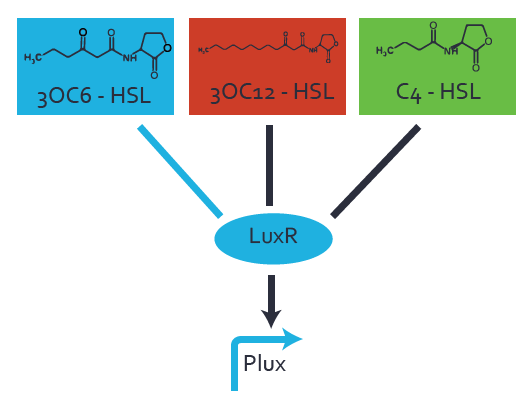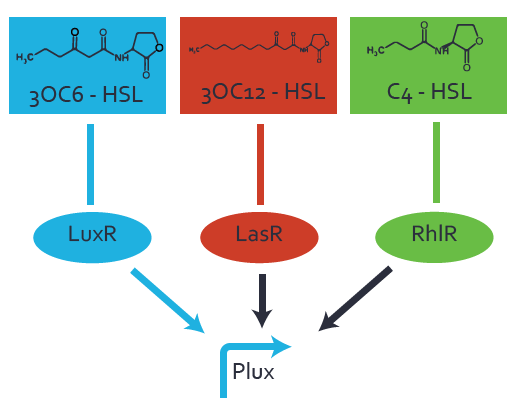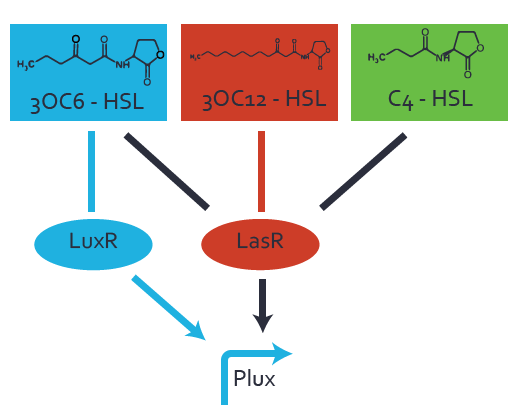Team:ETH Zurich/lab/biobrick/used1
From 2014.igem.org
(Difference between revisions)
m |
|||
| Line 13: | Line 13: | ||
=== Modeling leakiness === | === Modeling leakiness === | ||
| + | |||
| + | == Results == | ||
| + | |||
| + | = Characterization of the promoter's sensitivity to 3OC6-HSL depending on LuxR concentration = | ||
| + | |||
| + | == Background information == | ||
| + | |||
| + | === Systems considered === | ||
| + | |||
| + | === Modeling promoter's sensitivity === | ||
== Results == | == Results == | ||
| Line 42: | Line 52: | ||
== Results == | == Results == | ||
| - | |||
| - | |||
| - | |||
| - | |||
| - | |||
| - | |||
| - | |||
| - | |||
|}; | |}; | ||
Revision as of 14:09, 16 October 2014
|
<partinfo>BBa_R0062 AddReview 4</partinfo> ETH Zurich 2014 |
Characterization of the promoter's basal leakiness to LuxR in the absence of 3OC6-HSLBackground informationSystems consideredModeling leakinessResultsCharacterization of the promoter's sensitivity to 3OC6-HSL depending on LuxR concentrationBackground informationSystems consideredModeling promoter's sensitivityResultsCharacterization of two-level crosstalk on the promoterBackground informationSystem consideredModeling crosstalkFirst-order crosstalkFirst Level crosstalk: LuxR binds to different HSL and activates the promoterSecond Level crosstalk: other regulatory proteins, like LasR, bind to their natural HSL substrate and activates the promoterSecond order crosstalk: Combination of both cross-talk levelsOther regulatory proteins, like LasR, bind to different HSL and activates the promoter Results |
 "
"


